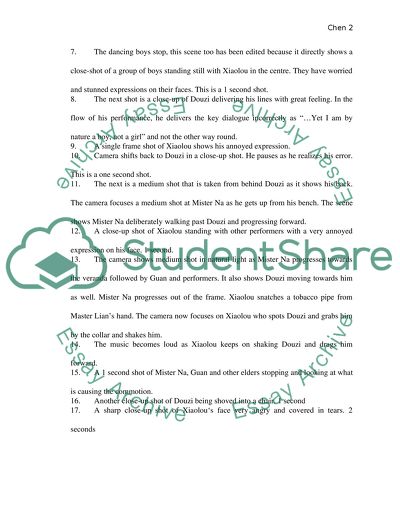Cite this document
(“A Close Analysis for a Single Scene in the Film Farewell My Concubine Movie Review”, n.d.)
Retrieved de https://studentshare.org/visual-arts-film-studies/1445039-a-close-analysis-for-a-single-scene-in-the-film
Retrieved de https://studentshare.org/visual-arts-film-studies/1445039-a-close-analysis-for-a-single-scene-in-the-film
(A Close Analysis for a Single Scene in the Film Farewell My Concubine Movie Review)
https://studentshare.org/visual-arts-film-studies/1445039-a-close-analysis-for-a-single-scene-in-the-film.
https://studentshare.org/visual-arts-film-studies/1445039-a-close-analysis-for-a-single-scene-in-the-film.
“A Close Analysis for a Single Scene in the Film Farewell My Concubine Movie Review”, n.d. https://studentshare.org/visual-arts-film-studies/1445039-a-close-analysis-for-a-single-scene-in-the-film.


